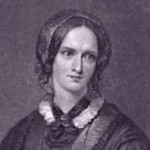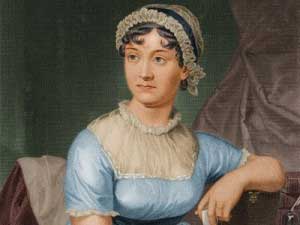Episode 2 – Great Works in Western Literature with Joseph Pearce – Emily Bronte [powerpress]
[powerpress]
Wuthering Heights is one of the classic novels of nineteenth century romanticism. As a major work of modern literature it retains its controversial status. What was Emily Brontë’s intention? Were her  intentions iconoclastic? Were they feminist? Were they Christian or post-Christian? Who are the heroes and the villains in this dark masterpiece? Are there any heroes? Are there any villains?
intentions iconoclastic? Were they feminist? Were they Christian or post-Christian? Who are the heroes and the villains in this dark masterpiece? Are there any heroes? Are there any villains?
 Based on the Ignatius Critical Edition, this series examines, from the Judeo-Christian perspective, the life,the times, and influence of authors of great works in literature .
Based on the Ignatius Critical Edition, this series examines, from the Judeo-Christian perspective, the life,the times, and influence of authors of great works in literature .
Joseph Pearce is currently the Writer-in-Residence and Visiting Fellow at Thomas More College of Liberal Arts in Merrimack, New Hampshire. He is also Visiting Scholar at Mount Royal Academy in Sunapee, New Hampshire. He is also Visiting Scholar at Mount Royal Academy in Sunapee, New Hampshire. He is  co-editor of the Saint Austin Review (or StAR), an international review of Christian culture, literature, and ideas published in England (Family Publications) and the United States (Sapientia Press). He is also the author of many books, including literary biographies of Solzhenitsyn, J. R. R. Tolkien, C. S. Lewis, G. K. Chesterton, and Oscar Wilde.
To learn more about the authors and titles available in the Ignatius Critical Editions
Tags: ave maria university, catholic, catholic podcast, catholic prayer, cathollc spirituality, emily bronte, ignatius press, ignatius press critical editions, joseph pearce, literature, oscar wilde, work, works, wuthering heights
This entry was posted on Wednesday, October 1st, 2014 at 11:36 am
You can follow any responses to this entry through the RSS 2.0 feed.
Episode 8 – Great Works in Western Literature with Joseph Pearce – Jane Austen
Jane Austen is arguably the finest female novelist who ever lived and Pride and Prejudice is arguably the finest, and is certainly the most popular, of her novels. An undoubted classic of world literature, its profound Christian morality is all too often missed or willfully overlooked by today’s (post)modern critics.
 In all things, Jane Austen was a woman of faith. Perhaps nowhere is this more apparent than in Mansfield Park, her most neglected, abused, and misunderstood novel. Like Austen’s other novels, it can be fully appreciated only when illuminated by the virtuous life and Christian beliefs of the author herself.
In all things, Jane Austen was a woman of faith. Perhaps nowhere is this more apparent than in Mansfield Park, her most neglected, abused, and misunderstood novel. Like Austen’s other novels, it can be fully appreciated only when illuminated by the virtuous life and Christian beliefs of the author herself.
Jane Austen saw the follies and foibles of human nature, and the frictions and fidelities of family life, with an incisive eye that penetrates to the very heart of the human condition.
[powerpress]
Based on the Ignatius Critical Edition, this series examines, from the Judeo-Christian perspective, the life, the times, and influence of authors of great works in literature .
Joseph Pearce is currently the Writer-in-Residence and Visiting Fellow at Thomas More College of Liberal Arts in Merrimack, New Hampshire. He is also Visiting Scholar at Mount Royal Academy in Sunapee, New Hampshire. He is also Visiting Scholar at Mount Royal Academy in Sunapee, New Hampshire. He is  co-editor of the Saint Austin Review (or StAR), an international review of Christian culture, literature, and ideas published in England (Family Publications) and the United States (Sapientia Press). He is also the author of many books, including literary biographies of Solzhenitsyn, J. R. R. Tolkien, C. S. Lewis, G. K. Chesterton, and Oscar Wilde.
To learn more about the authors and titles available in the Ignatius Critical Editions
Tags: ave maria university, family life, heart, ignatius critical editions, ignatius press, jane austen, jane austin, joseph pearce, literary biographies, literature, mansfield park, pride and prejudice, sapientia press
This entry was posted on Friday, August 2nd, 2013 at 11:55 am
You can follow any responses to this entry through the RSS 2.0 feed.
Episode 10 – Great Works in Western Literature with Joseph Pearce – William Shakespeare
Arguably Shakespeare’s finest and most important play, Hamlet is also one of the most misunderstood masterpieces of world literature. “To be or not to be”, may be the question, but the answer has eluded many generations of critics. What does it  mean “to be”? And is everything as it seems to be?
mean “to be”? And is everything as it seems to be?
Probably the darkest of all Shakespeare’s plays, Macbeth is also one of the most challenging. Is it a work of nihilistic despair, “a tale told by an idiot, full of sound and fury, signifying nothing”, or is it a cautionary tale warning of the dangers of Machiavellianism and relativism? Does it lead to hell and hopelessness, or does it point to a light beyond the darkness?
[powerpress]

 Â Based on the Ignatius Critical Edition, this series examines, from the Judeo-Christian perspective, the life, the times, and influence of authors of great works in literature .
 Based on the Ignatius Critical Edition, this series examines, from the Judeo-Christian perspective, the life, the times, and influence of authors of great works in literature .
Joseph Pearce is currently the Writer-in-Residence and Visiting Fellow at Thomas More College of Liberal Arts in Merrimack, New Hampshire. He is also Visiting Scholar at Mount Royal Academy in Sunapee, New Hampshire. He is also Visiting Scholar at Mount Royal Academy in Sunapee, New Hampshire. He is  co-editor of the Saint Austin Review (or StAR), an international review of Christian culture, literature, and ideas published in England (Family Publications) and the United States (Sapientia Press). He is also the author of many books, including literary biographies of Solzhenitsyn, J. R. R. Tolkien, C. S. Lewis, G. K. Chesterton, and Oscar Wilde.
To learn more about the authors and titles available in the Ignatius Critical Editions
Tags: ave maria university, catholic, catholic podcast, catholic prayer, cathollc spirituality, hamlet, hell, joseph pearce, literary biographies, literature, macbeth, sapientia press, william shakespeare, William Shakespeare Arguably Shakespeare, work
This entry was posted on Friday, November 4th, 2011 at 6:27 am
You can follow any responses to this entry through the RSS 2.0 feed.


